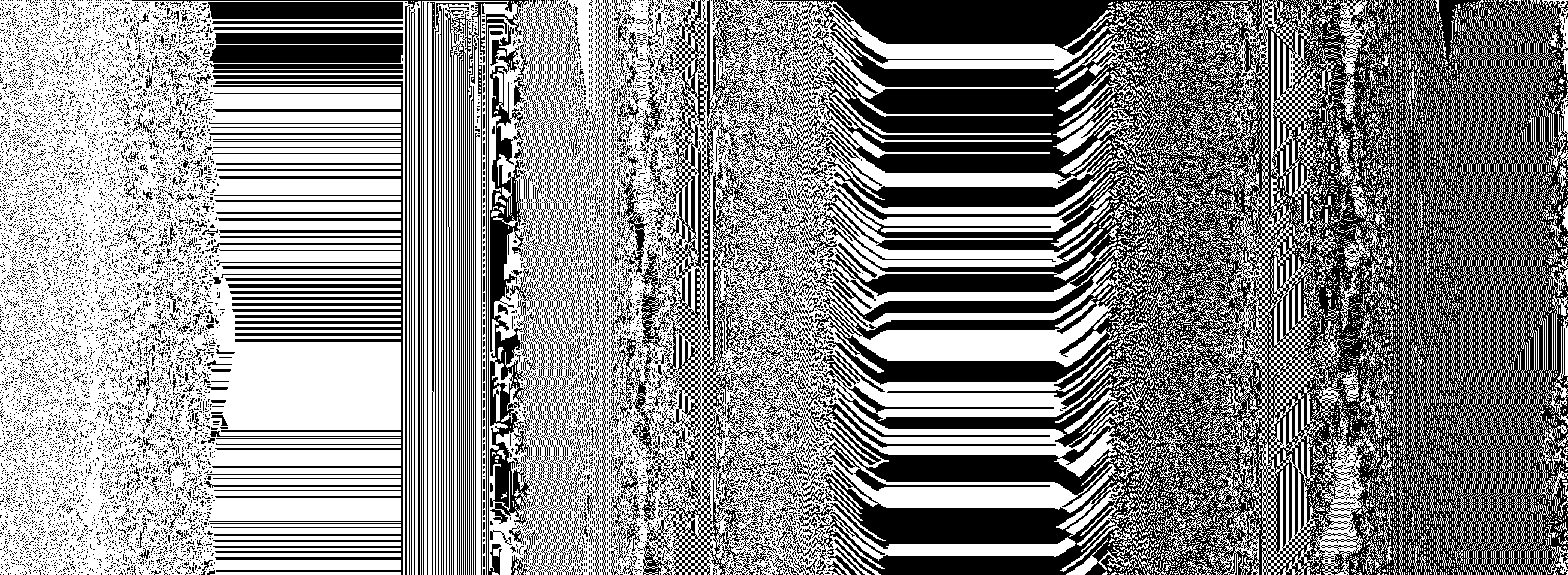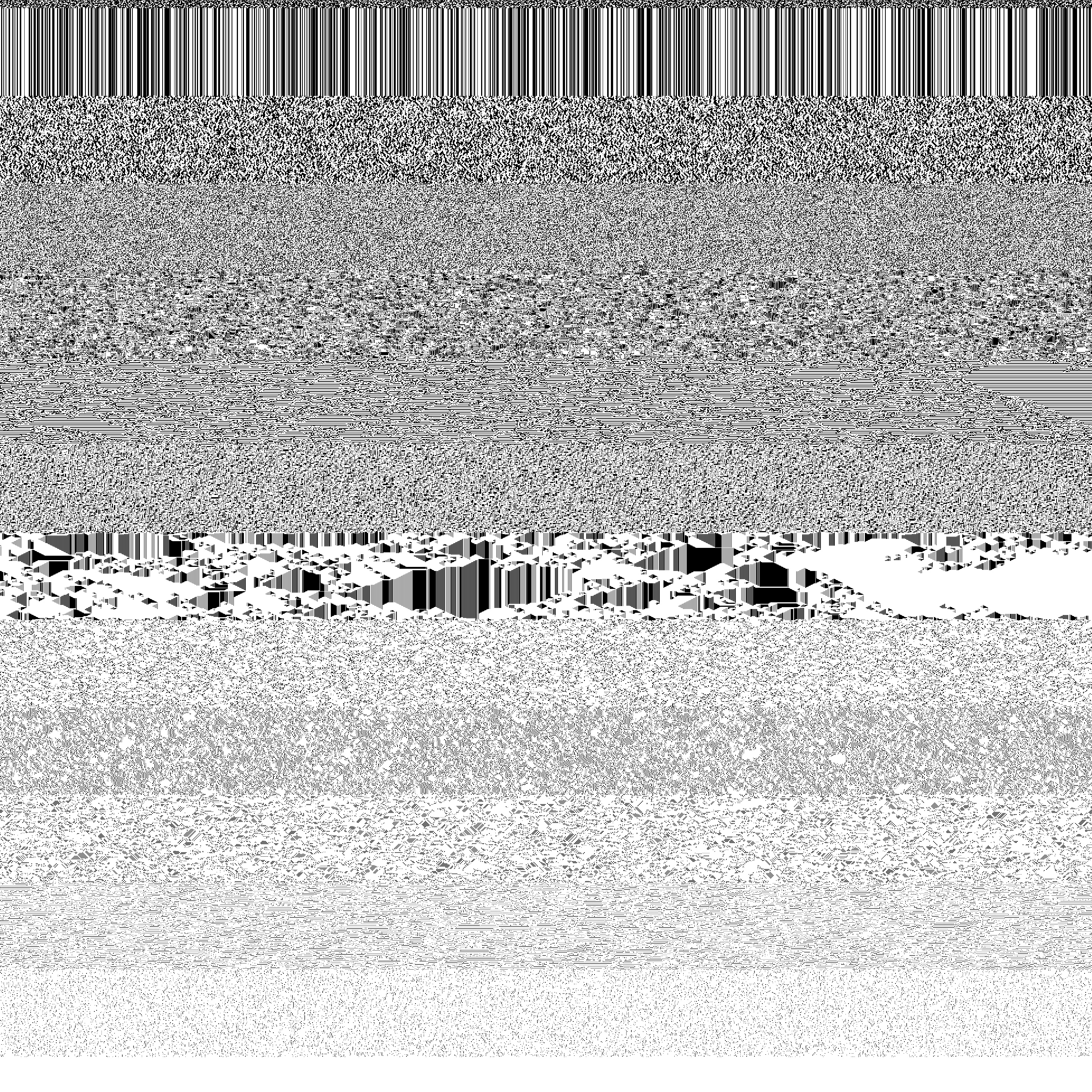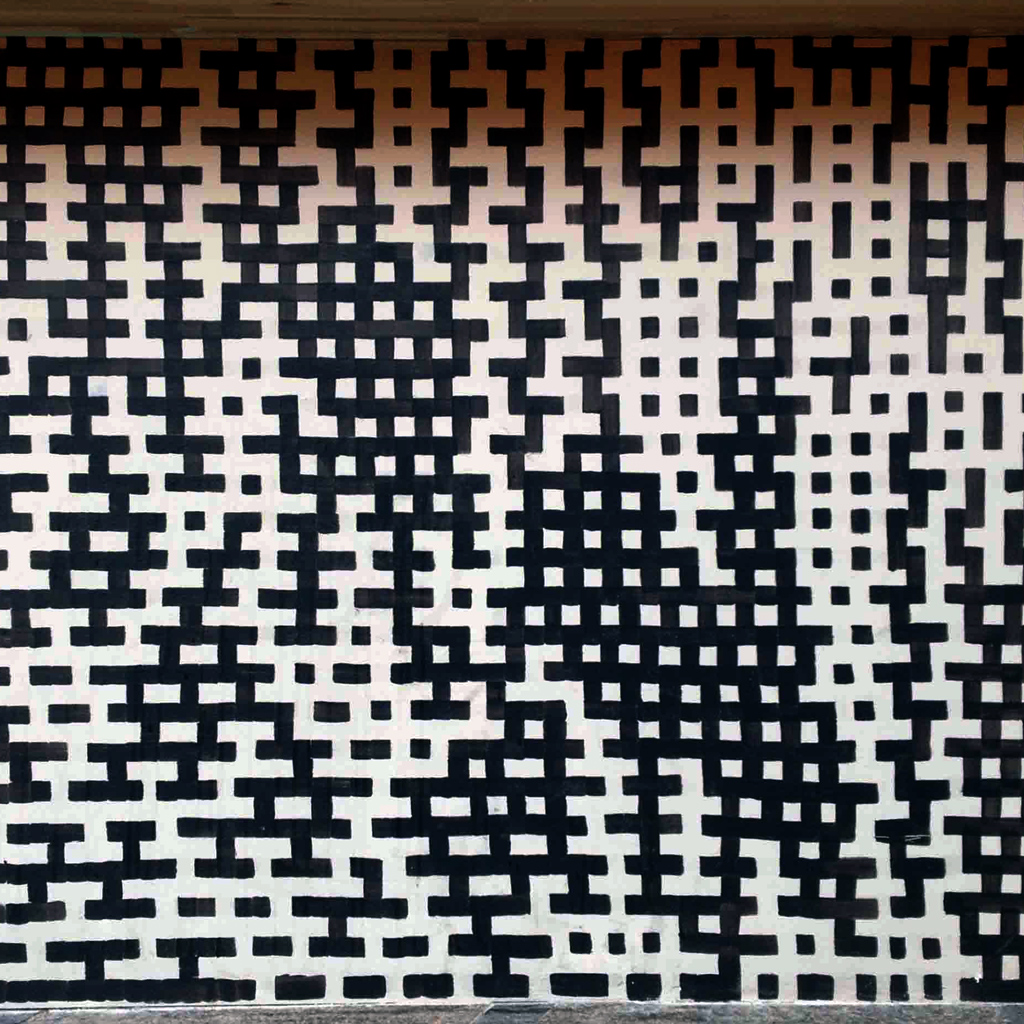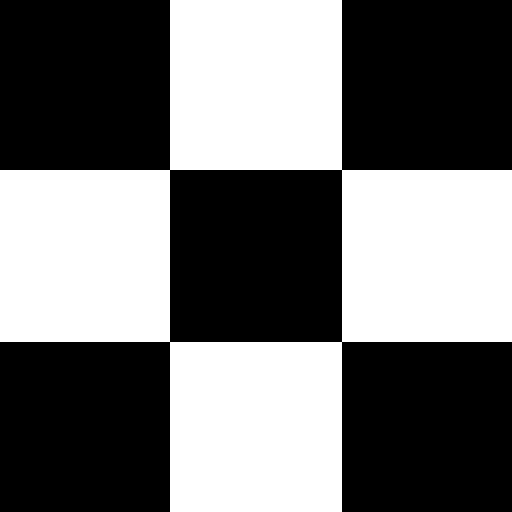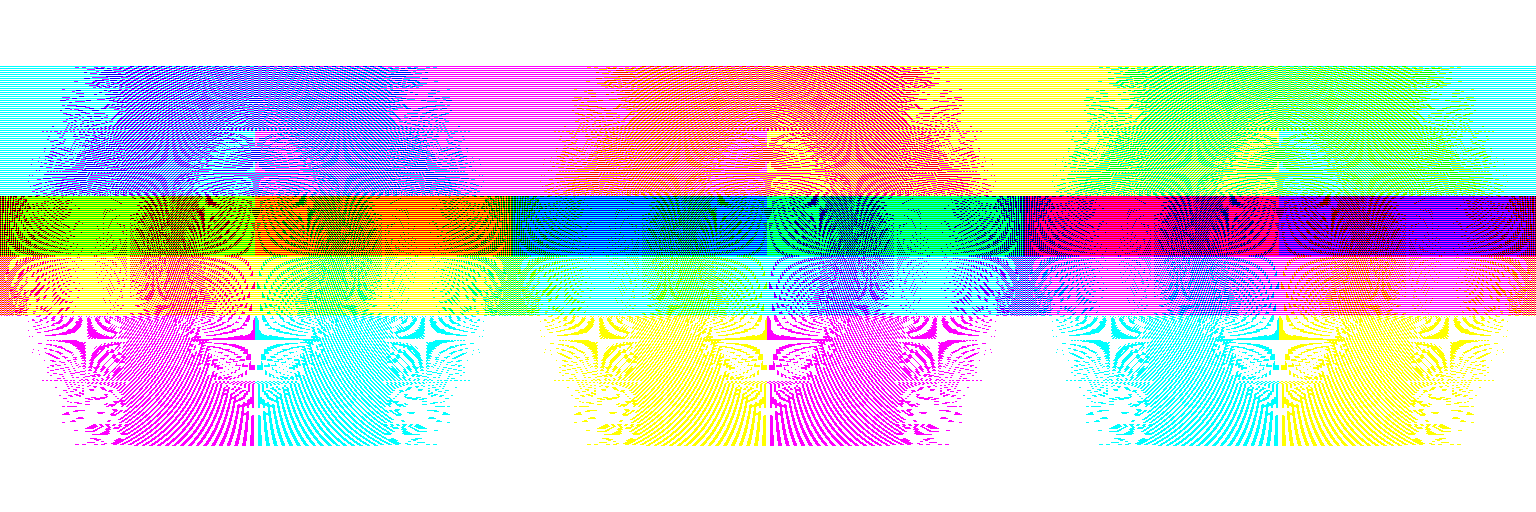Algorithmic Art
computer-generated algorithmic art
Original algorithms:
2020 Super Skew
-
2015 Satzero
2014 TCNN
2014 Motion Blurve
-
2011 Blurve
-
2007 Dithki
Starting graphics systems:
2012 Modular Sequences
2007 Dithki
2020 Super Skew
Skewing by shifting rows.
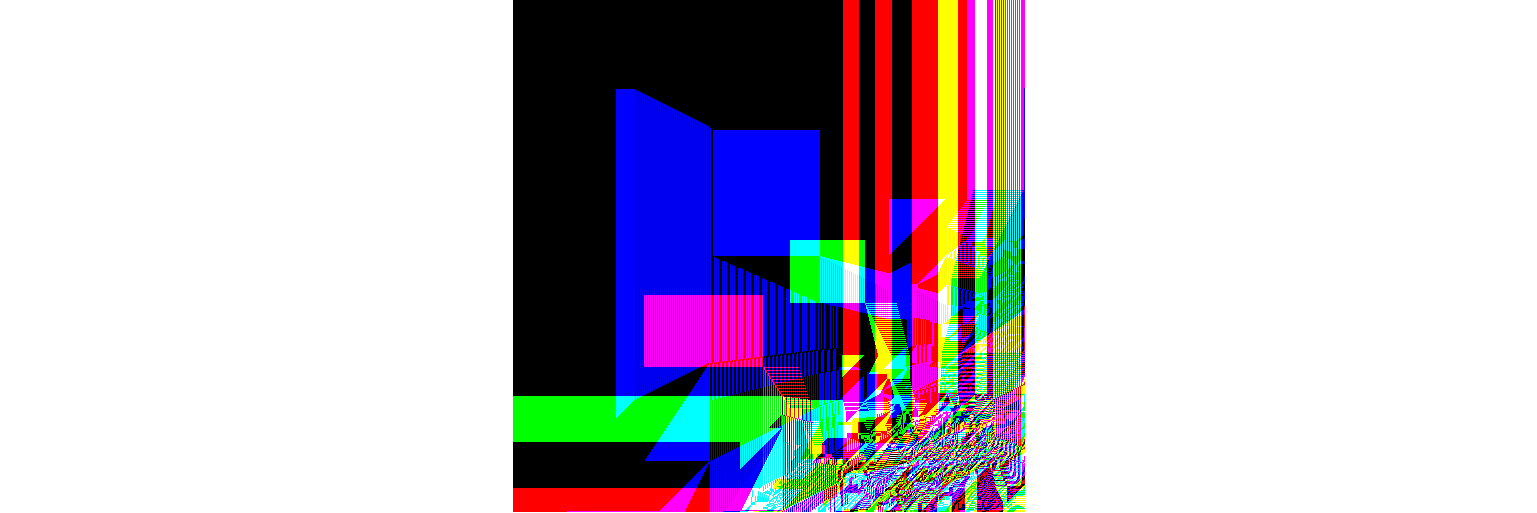

2015 Satzero
![]()
I discovered that when I adjust image hue, saturation, lightness by zero value some colors are changing anyway. I was extracting the patterns of their distribution mostly by multiplying this adjustment. I called this Satzero (saturation zero).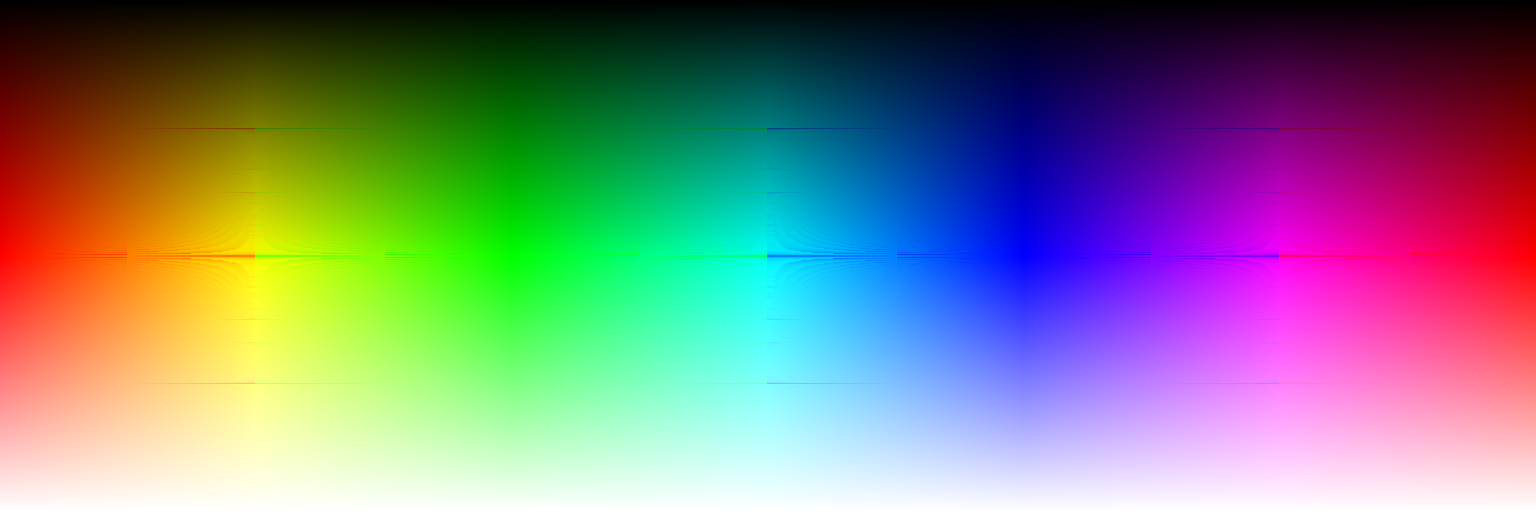
Actual color change after 128 Satzero multiplication showed on color spectrum.
![]() Pattern showed on RGB cube net animated with every new change of color with every new multiplication of Satzero adjustment.
Pattern showed on RGB cube net animated with every new change of color with every new multiplication of Satzero adjustment.
![]()
The TCNN-R-pi transformation of each 256 slices of the RGB cube with monochromatic satzero patterns
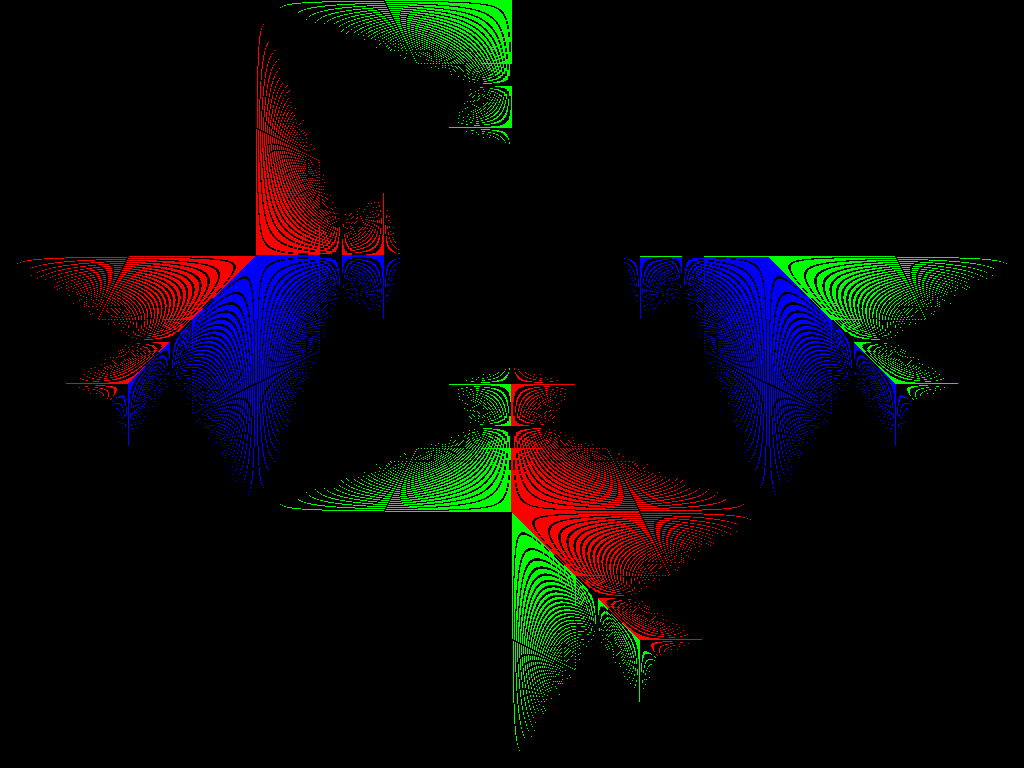 Pattern showed on RGB cube net animated with every new change of color with every new multiplication of Satzero adjustment.
Pattern showed on RGB cube net animated with every new change of color with every new multiplication of Satzero adjustment.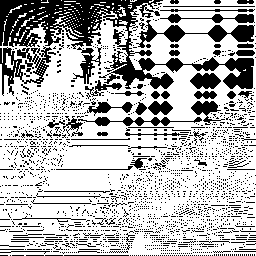
The TCNN-R-pi transformation of each 256 slices of the RGB cube with monochromatic satzero patterns
2014 TCNN
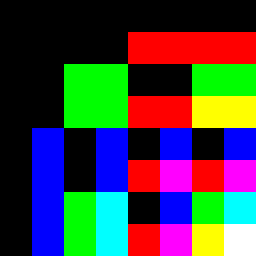
move-y1px,x1px_2frame_delay_xor_modular layer representation_n2_l3_8x8_tcnn200-50 1-1081_scaled0,5nn


TCNN-R-pi_200-50_allmerged_modular layer representation_n2_l1-l10_1-384_CONSTANS_size0,5nn_xor_2framedelay
![]() TCNN-R-pi_allmerged_modular layer representation_n2_l9-l10_multiply_xor_lf_xor_l10-l10_multiply_xor_lf
TCNN-R-pi_allmerged_modular layer representation_n2_l9-l10_multiply_xor_lf_xor_l10-l10_multiply_xor_lf
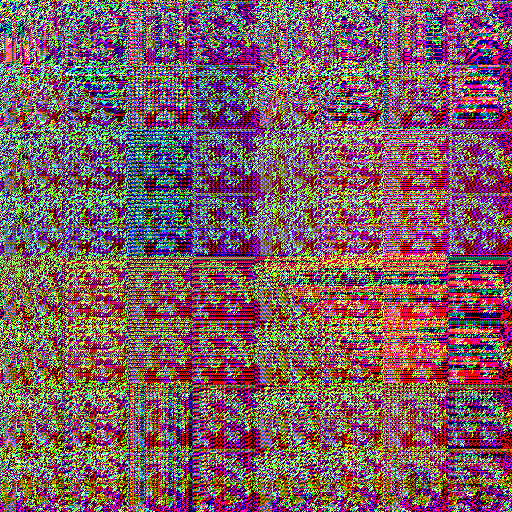 TCNN-R-pi_allmerged_modular layer representation_n2_l9-l10_multiply_xor_lf_xor_l10-l10_multiply_xor_lf
TCNN-R-pi_allmerged_modular layer representation_n2_l9-l10_multiply_xor_lf_xor_l10-l10_multiply_xor_lf
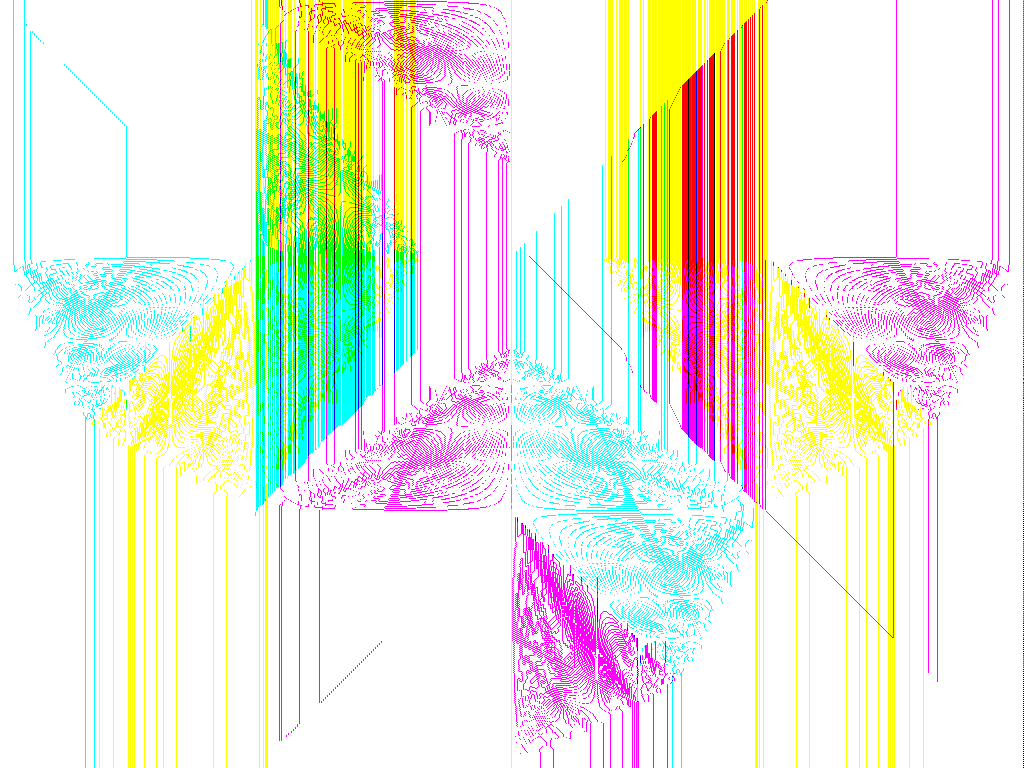

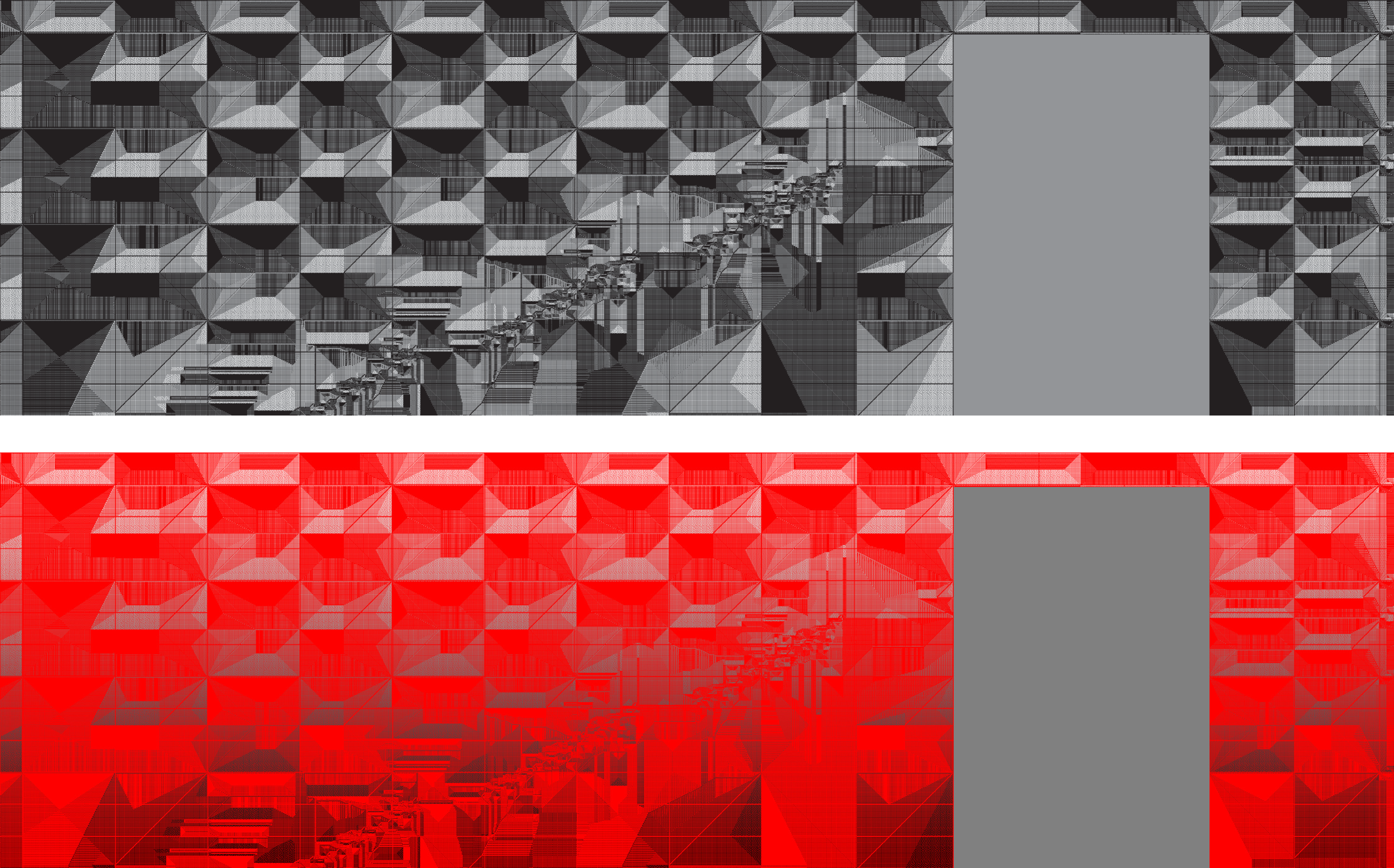
2014 Motion Blurve
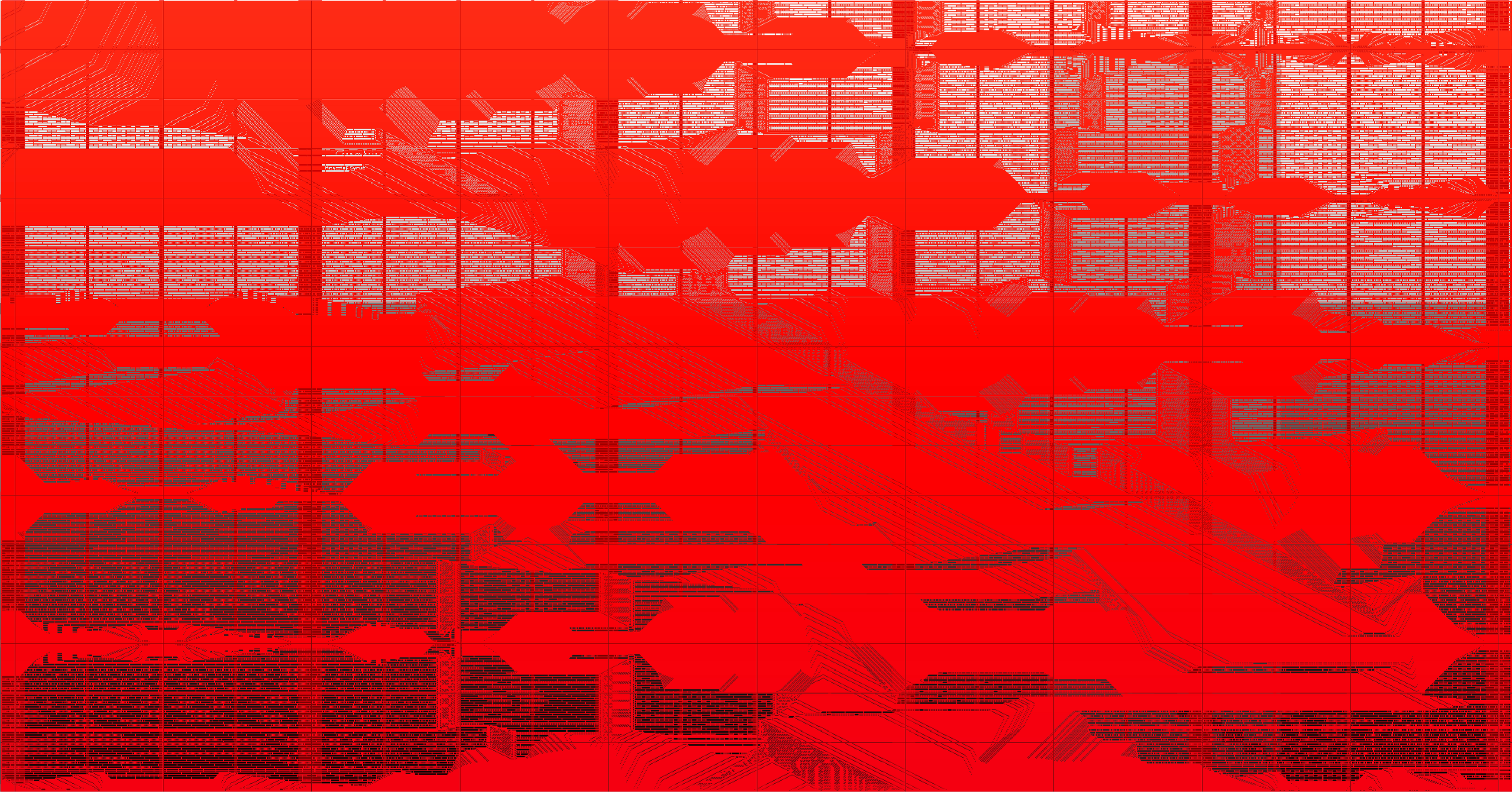
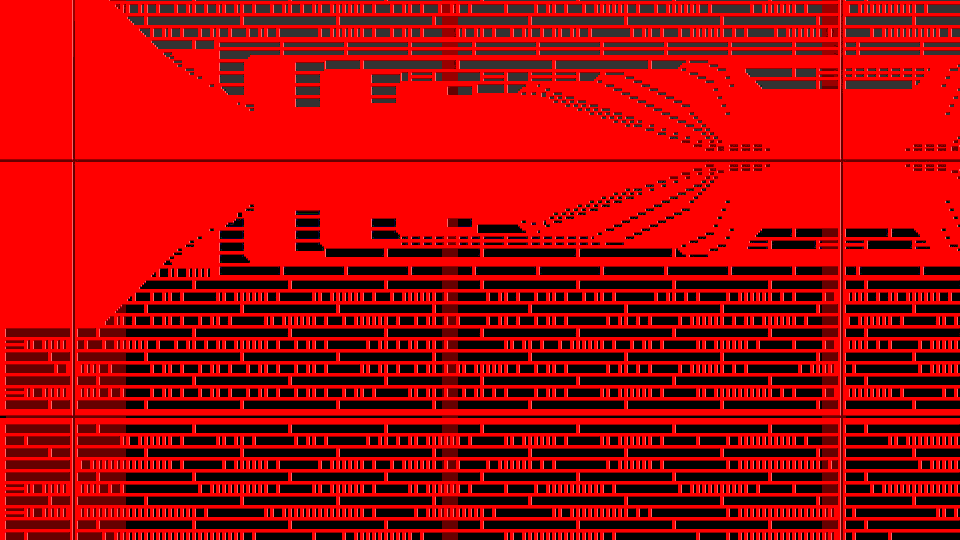
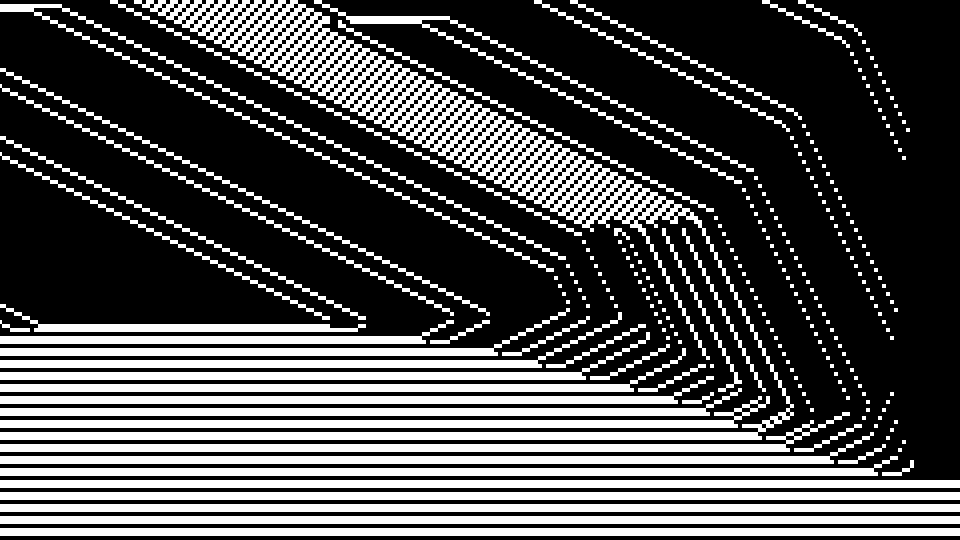
2012 Modular Sequences
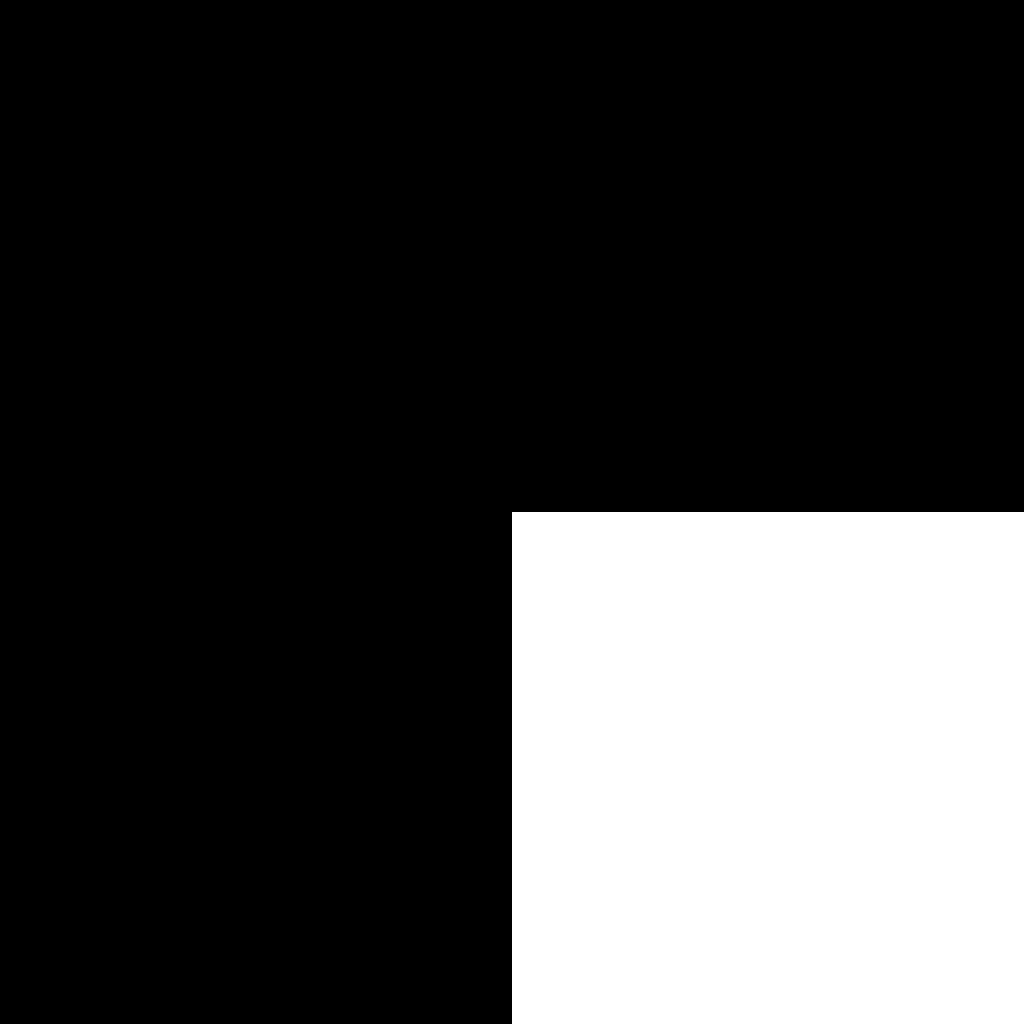
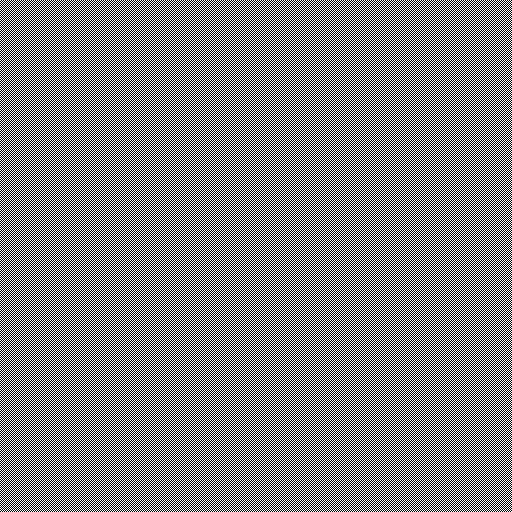
Self interference of alternating representation of modular sequence with base 2 and power 8
2011 The Blurve
The Blurve blurs an image and changes all its tones of each RGB channel alternatively to maximum and minimum. Blurring is for getting new tones. Patterns animate when the process is repeated. It stops when after transformation the image stays the same.
Actually I started generating images this way in 2007 but in 2011 for the first time I made this process automatic.

The Blurve - chapter 1 (test release)
The Blurve - chapter 2 version 3.0 (test release) r=2.1px, a=21px
2007 Dithki
A range of pixel
dithering
arrangements
![]()

